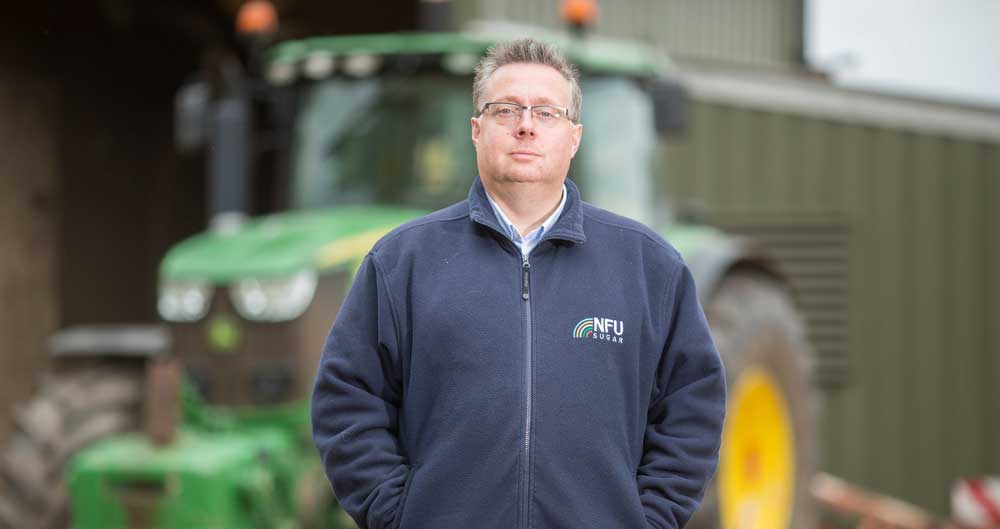All growers of sugar beet are arable farmers and the broader impacts of COVID-19 on the arable sector are covered by the NFU’s crops board and team so I won’t repeat them here. It is useful however to reflect on the potential impact of COVID-19 on the homegrown sugar industry.
As it became clear COVID-19 was a major pandemic, British Sugar acted quickly to lock down the four factories and NFU Sugar staff within the factories and warehouses.
With drier and warmer weather recently we are now much more confident that most of the remaining beet area will be delivered to factory before Newark finally closes in early April. This has been a long and difficult campaign for growers, harvesters and hauliers alike. I would like to thank you all, and the British Sugar and NFU Sugar teams for bringing this campaign to what should be a successful conclusion under some very challenging conditions.
Click here to use the NFU's COVID-19 business impact service.
By using this form, farmers and growers can provide information on any business-critical issues they have encountered, or expect to encounter, arising from the COVID-19 outbreak. The NFU will log this information and use it in an anonymised format to flag the key issues agriculture and horticulture are facing to government on a daily basis. However, no personal data will be shared with the government. The service is for all farmers and growers across the UK.
With the warmer weather comes the urgent need to get next year’s beet crop in the ground. Most of the seed has already been delivered onto farm and British Sugar and the NFU have agreed that any further requirements will be made available either via courier (funded by the UK Seed Account) or via ‘no contact’ collection from store to minimise social interaction.
Unsurprisingly drilling started later than a ‘normal’ year and remains behind, but with more good weather (and sufficient red diesel, the NFU is aware of longer lead times) we should catch up.
The major threat this spring comes from Virus Yellows disease to sugar beet plants. Rothamsted has been providing Virus Yellows infection forecasts for decades and this spring is the worst it’s been for 50 years. Even 1974/5 (where 86% of plants were infected and there was a very significant drop in yield) didn’t have such a bad forecast. This is very sobering, as we lack neonicotinoid seed treatments.
NFU Sugar continues to work closely with British Sugar and the BBRO to lobby for the necessary plant protection products, most recently in a phone call with the Agriculture Minister. We have made government aware that even with the necessary chemicals available on farm, a more widespread COVID-19 infection might mean sprayer operators are ill or self-isolating. This could become an issue because of the licensing requirements for sprayer operators and the absolute need for timely application of chemicals to manage the aphid infestation/Virus Yellows infection.
NFU Sugar is looking at possible longer term consequences of the pandemic. We are already seeing the UK public support homegrown food more than ever and I hope this continues long term. But not all potential consequences will be positive. For example, a large proportion of Europe’s sugar beet seed is produced in Italy and Southern France. There are no concerns reported with seed crops yet, but it is on our radar that availability of seed for next spring’s planting could be affected by the terrible impact of coronavirus in these countries We will work with British Sugar and others to overcome these challenges.
At this time your recently harvested sugar beet will be supplying some of the UK’s sugar, animal feed, bioethanol and electricity. Please follow current social isolation and distancing rules, no matter how hard. This is a time for us all to come together and look out for each other.
Michael Sly
